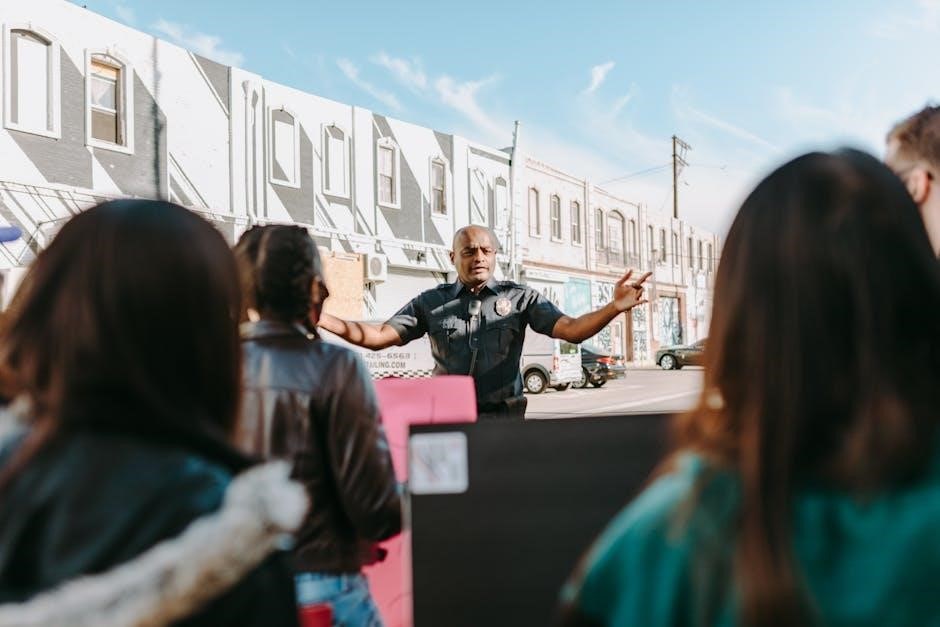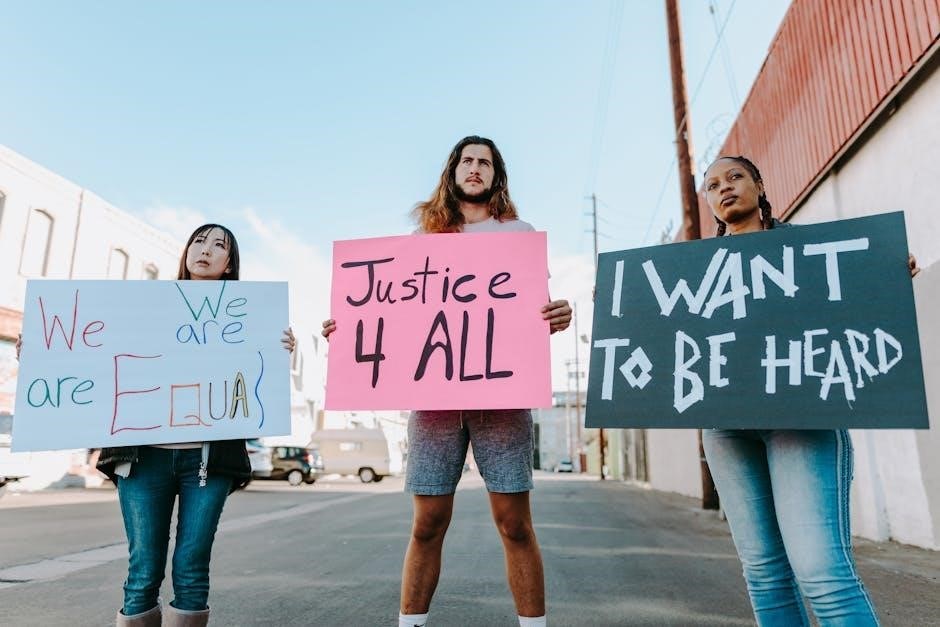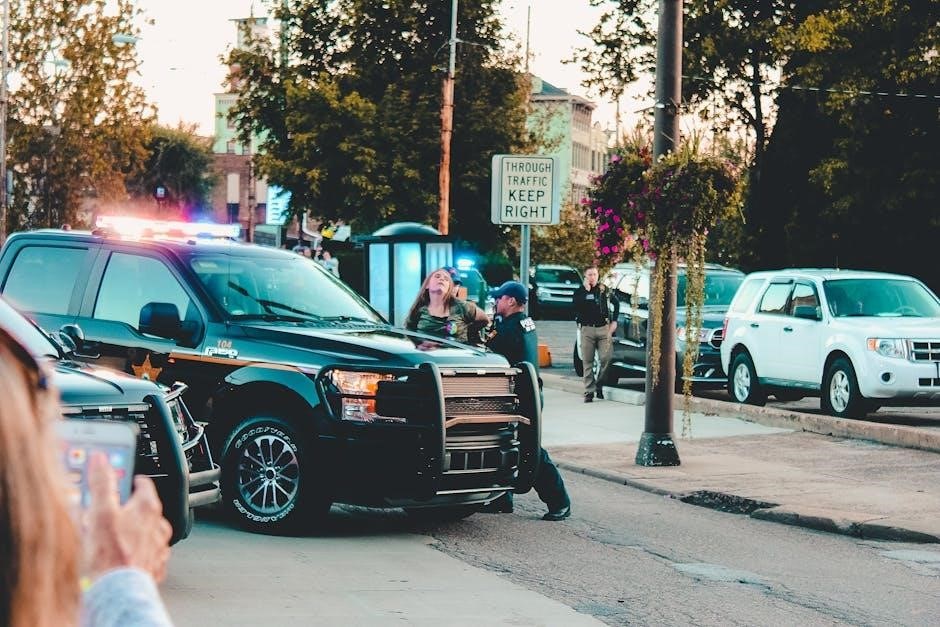
Rights Police Don’t Want You to Know
You possess rights that police may prefer you didn’t know! These rights, when asserted, can complicate their work. However, we’re here to illuminate these often-overlooked rights. After reading, you‘ll know your rights and protect yourself during interactions with law enforcement agents.
Navigating encounters with law enforcement can be daunting, but understanding your rights is crucial for safeguarding your freedom and dignity. Many individuals are unaware of the full extent of their protections under the law, and some law enforcement tactics rely on this lack of knowledge. This guide aims to empower you with the information necessary to assert your rights confidently during police interactions.
It’s essential to recognize that you have rights, regardless of your background or circumstances. These rights are enshrined in the Constitution and protect you from unlawful searches, seizures, and questioning. Knowing these rights is the first step towards protecting yourself and ensuring fair treatment.
This section serves as an introduction to the fundamental rights that police officers might not readily disclose. We’ll explore the importance of remaining informed, assertive, and respectful during encounters with law enforcement. By understanding your rights, you can avoid making unintentional mistakes that could jeopardize your case or lead to unjust consequences.

Remember, knowledge is power. Arm yourself with the information you need to navigate police interactions effectively and protect your constitutional rights.
The Right to Remain Silent
One of the most fundamental rights you possess during police interactions is the right to remain silent; This right, guaranteed by the Fifth Amendment of the U.S. Constitution, protects you from self-incrimination. It means you are not obligated to answer any questions posed by law enforcement officers.
The police are not required to inform you of your rights unless you are in custody and subject to interrogation. However, even if they haven’t read you your Miranda rights, you still have the right to remain silent. Exercise this right by clearly stating that you wish to remain silent and do not want to answer any questions.
It’s crucial to understand that anything you say to the police can be used against you in court. Even seemingly harmless statements can be misinterpreted or twisted to support a criminal charge. Therefore, it’s generally advisable to invoke your right to remain silent until you have consulted with an attorney.
Don’t try to convince the officer of your innocence or offer explanations or excuses. Politely but firmly assert your right to remain silent and request to speak with a lawyer. This simple act can significantly protect your interests and prevent potential legal complications.
The Right to an Attorney
Complementing the right to remain silent is your right to an attorney. This right, also stemming from the Fifth Amendment and further solidified by the Sixth Amendment, ensures that you have access to legal counsel during police interactions, especially when facing questioning or potential charges. If you are taken into custody for interrogation, you have the right to speak to an attorney before answering any questions.
Law enforcement may not always readily offer access to an attorney, hoping to gain information before you seek legal advice. However, it’s crucial to assert your right explicitly. State clearly that you want to speak with an attorney and do not wish to answer any questions until you have consulted with one.
If you cannot afford an attorney, one will be provided to you, eventually. You do not have to answer any questions before the attorney arrives. The police are not obligated to immediately connect you with a lawyer simply because you ask. However, they cannot continue questioning you without one if you have clearly invoked your right to counsel; An attorney can advise you on your rights, explain the legal process, and represent your interests effectively.
When Police Stop You in Public
Encounters with police in public spaces can be unsettling, but knowing your rights is paramount. Even if you are unhoused, you have the same rights as anyone else when stopped, searched, or questioned by police. Police may approach you for various reasons, ranging from routine inquiries to suspicion of criminal activity. Regardless of the reason, it’s essential to remain calm and assert your rights respectfully.
You are not obligated to answer questions beyond providing identification if requested in certain circumstances. Ask if you are free to leave. If the officer says yes, calmly and silently walk away. If they detain you, they must have reasonable suspicion that you’ve committed, are committing, or are about to commit a crime. You have the right to remain silent and cannot be punished for refusing to answer questions.
Avoid making sudden movements or gestures that could be misinterpreted. Keep your hands visible at all times. If you feel your rights are being violated, do not argue or resist physically. Remember, it’s better to comply and address any concerns later through legal channels. Record the encounter, if possible, without obstructing the officer’s duties. This documentation can be valuable if you need to file a complaint or pursue legal action later.
Rights During a Traffic Stop
Traffic stops are common occurrences, but they can quickly escalate if you’re unaware of your rights. When an officer signals you to pull over, do so safely and promptly. Keep your hands visible on the steering wheel. You are required to provide your driver’s license, vehicle registration, and insurance information upon request.
However, you are not obligated to answer additional questions without legal counsel. Ask if you are free to leave. If the officer says yes, move calmly and quietly. If you are arrested, you have the right to know why. Remain calm and polite, even if you disagree with the officer’s actions. Arguing or resisting can lead to further complications.
Unless the officer has a warrant or probable cause, they cannot search your vehicle without your consent. You have the right to refuse a search. Say, “I do not consent to a search.” It’s crucial to understand and assert your rights effectively during police encounters. If you believe your rights have been violated, document the incident and seek legal advice from a knowledgeable attorney. Remember, knowing your rights is essential for protecting yourself during traffic stops.
Rights When Police Come to Your Home
When law enforcement officers appear at your doorstep, it’s essential to understand your rights and how to assert them. Generally, police cannot enter your residence without a warrant, your consent, or exigent circumstances (an emergency situation). If officers arrive without a warrant, you have the right to refuse them entry.
Ask to see the warrant through the door or window. Ensure the warrant is valid and specifies your address. Even if officers have a warrant, you have the right to remain silent. You should not answer questions or speak to the officers while they are in your house. Do not obstruct or resist the police, but clearly state that you do not consent to any search of your home.
If the police force their way in, do not physically resist. Note their actions and any damage they cause. Contact an attorney immediately to discuss your legal options. Remember, knowing your rights and acting calmly can help protect you from potential violations during a home visit by law enforcement.

Your Rights During an Arrest
If you are placed under arrest, understanding your rights is crucial. The most well-known is the right to remain silent. You are not obligated to answer any questions posed by the police. Invoke this right immediately and clearly state you wish to remain silent. This prevents any statements you make from being used against you.
You also have the right to an attorney. Requesting a lawyer is essential before answering any questions. If you cannot afford an attorney, one will be appointed to you. The police cannot continue questioning you without one present if you’ve requested counsel.
During the arrest, remain calm and do not resist, even if you believe the arrest is unlawful. Resisting can lead to additional charges. Ask for the reason for your arrest. Remember details about the arrest, including the officers’ names and badge numbers. Once you are arrested by police, you have the right to make a local phone call.
Search and Seizure Rights: Warrants and Consent
The Fourth Amendment protects against unreasonable searches and seizures. Generally, police need a warrant to search your property. A warrant must be based on probable cause and describe the place to be searched and the items to be seized. If officers have a warrant, you have the right to remain silent. You should not answer questions or speak to the officers while they are in your house.
However, there are exceptions. One is consent. Police can search your property if you voluntarily consent. You have the right to refuse consent. If you do consent, the search is legal, even without a warrant. Never consent to a search if you have something to hide. If you do not consent, say “I do not consent to a search.”
Another exception is plain view. If illegal items are in plain view, police can seize them without a warrant. Also, during a lawful arrest, police can search the area within the arrestee’s immediate control.

Recording Police Interactions
In many jurisdictions, you have the right to record police interactions in public. Recording can provide an objective record of events and protect you from police misconduct. It’s crucial to know the laws in your state regarding recording. Some states require all parties to consent to the recording, while others only require one party to consent.
Openly recording can deter police misconduct. If you choose to record, remain calm and respectful. Don’t interfere with the police investigation. Keep your distance and ensure your recording doesn’t obstruct their work. Inform the officer you are recording, but do so politely.
Be aware that police may try to stop you from recording. They cannot legally confiscate your phone or camera without a warrant, unless it’s evidence of a crime. If they do, clearly state that you do not consent to the seizure. Save the recording as soon as possible to ensure it’s preserved.
Asserting Your Rights Effectively
Knowing your rights is only the first step; asserting them effectively is crucial. The key is to remain calm and respectful while clearly stating your intentions. Don’t argue, resist, or obstruct the police, even if you believe they are violating your rights. Keep your hands visible at all times.
If you wish to remain silent, clearly and verbally state, “I am invoking my right to remain silent.” If you want an attorney, say, “I want to speak to a lawyer.” Continue to remain silent until you have consulted with legal counsel. Avoid making any statements or answering questions without an attorney present.

If police ask to search your vehicle or home, you have the right to refuse. Clearly state, “I do not consent to a search.” Remember, police may use deception to get you to waive your rights, so be firm and consistent. Document the encounter as soon as possible afterwards, noting the officers’ names, badge numbers, and details of the interaction.
Consequences of Not Knowing Your Rights
Failing to understand your rights during a police encounter can lead to severe and lasting consequences. Without knowledge of your protections, you might unknowingly waive them, potentially incriminating yourself or allowing unlawful searches.
For instance, answering questions without invoking your right to remain silent can provide police with information that could be used against you in court. Consenting to a search without a warrant allows law enforcement to gather evidence that might otherwise be inadmissible.
Ignorance of your rights can also result in wrongful arrest or detention. If you are unaware that you can refuse a search or demand to speak with an attorney, you may find yourself in a situation that escalates unnecessarily.
Furthermore, not knowing your rights can lead to a feeling of powerlessness and vulnerability during police interactions. This can result in anxiety and fear, making it difficult to assert your rights effectively even if you become aware of them later. Protect yourself by becoming informed and prepared.